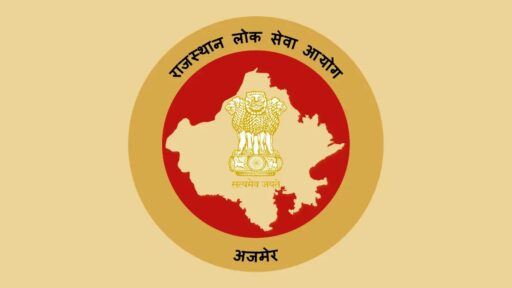Got it — I’ll rewrite the article with a different choice of words and phrasing while keeping the same tone, structure, and SEO focus on Patna High Court Recruitment 2025. This ensures the content looks fresh and unique but still optimized.
The Patna High Court Recruitment 2025 notification has been issued, opening up 111 vacancies for the position of Stenographer. This announcement offers a strong career opportunity for aspirants seeking government jobs in Bihar, particularly in the judicial sector. With competitive pay, job stability, and scope for professional growth, this recruitment drive is expected to draw wide interest.
Questionable Content
Quick Glance – Job Information Table of Patna High Court Recruitment
| Particulars | Details |
|---|---|
| Post Name | Stenographer |
| Organization | Patna High Court |
| Vacancies | 111 |
| Advertisement No. | PHC/02/2025 |
| Qualification | 12th Pass + Computer Diploma + Shorthand & Typing |
| Salary | ₹25,500 – ₹81,100 (Level 4) |
| Age Limit | 18 – 37 years (as on 01/01/2025) |
| Application Fee | ₹1100 (Gen/BC/EBC/EWS), ₹550 (SC/ST/OH) |
| Application Start Date | 21 August 2025 |
| Application End Date | 19 September 2025 |
| Fee Payment Deadline | 21 September 2025 |
| Apply Online | Apply Here |
| Notification PDF | Download Here |
| Website | Patna High Court |
Recruitment Overview
Through Advertisement No. PHC/02/2025, the Patna High Court has invited online applications for the role of Stenographer. Candidates who have passed 12th standard and possess computer skills along with shorthand and typing proficiency are eligible to apply.
The last date for submission of the application form is 19 September 2025, while the fee payment window will remain open until 21 September 2025.
Vacancy Distribution of Patna High Court Recruitment
The total of 111 posts has been categorized as follows:
- Unreserved (UR): 32
- Economically Weaker Section (EWS): 06
- Backward Class (BC): 15
- Extremely Backward Class (EBC): 26
- Scheduled Caste (SC): 30
- Scheduled Tribe (ST): 02
Educational Qualification for Patna High Court Recruitment
To be considered for the Patna High Court Stenographer Recruitment 2025, candidates must meet the following criteria:
- Passed Intermediate (12th Class) from a recognized board or university.
- A six-month diploma/certificate course in Computer Application.
- Shorthand speed of 80 words per minute in English.
- Typing speed of 40 words per minute in English.
Age Limit
- Minimum Age: 18 years
- Maximum Age: 37 years (as on 01 January 2025)
- Age relaxation applies as per government regulations.
Salary Details
The appointed candidates will receive salary under Pay Level 4, ranging between ₹25,500 and ₹81,100 per month, along with other admissible allowances.
Application Fee
- General / BC / EBC / EWS: ₹1100
- SC / ST / OH: ₹550
Important Dates
- Online Application Begins: 21 August 2025
- Last Date to Submit Application: 19 September 2025
- Last Date to Pay Fees: 21 September 2025
How to Apply
Eligible candidates should apply online through the official website of the Patna High Court. Before proceeding with the application, it is recommended to carefully review the official notification.
- Apply Online: Click Here
- Notification PDF: Download Here
- Official Website: Patna High Court
Why This Job Matters
Government jobs in the judiciary not only offer financial security and attractive benefits but also provide the chance to serve in a respected institution. The Patna High Court Recruitment 2025 gives eligible candidates a pathway into a rewarding and dignified career.
Final Words
The Patna High Court Stenographer Recruitment 2025 is a prime chance for individuals who want to build a career in the judiciary. With 111 positions available, candidates are advised not to delay and to complete the online application before 19 September 2025.
About Patna High Court (Alternative)
The Patna High Court is more than a courthouse; it is Bihar’s constitutional referee and the final word on many public questions that affect daily life. Cases arrive from every corner of the state—land and tenancy disputes, service matters, criminal appeals, public interest petitions, and commercial conflicts. Each file carries a human story; each order has consequences for policy, budgets, and governance.
At its core, the Court balances two mandates. One is protection—of liberty, property, and due process through writs and appellate review. The other is supervision—guiding district courts, monitoring case flow, and setting practice norms so that justice is not merely available but workable. This combination allows the Court to correct errors, unify legal interpretation, and keep the system moving.
Modernisation has helped. Digital cause lists, e-filing windows, electronic delivery of orders, and video-enabled hearings in appropriate matters have widened the door to justice. Lawyers and litigants can track matters with fewer bottlenecks, while registries use standardised formats to reduce paperwork and errors. These small operational shifts add up to shorter queues, clearer timelines, and better use of court time.
Human resources underpin this progress. Recruitment drives—whether for stenographers, clerks, or technical staff—are designed to be rule-bound and time-bound. Eligibility criteria are spelled out, application windows are public, and selection methods are documented. Once onboard, staff work within defined roles that prioritise accuracy, confidentiality, and speed, especially in transcript preparation, record management, and listing.
The Court’s judgments often set the pace for reform in policing, municipal administration, education, healthcare procurement, and welfare delivery. By insisting on reasons, timelines, and compliance, the Court nudges institutions toward better governance. Importantly, it does so within the discipline of precedent and the Constitution’s checks and balances.

In a state with rising aspirations, the Patna High Court functions as a stabiliser. It hears, evaluates, and decides—day after day—so that rights have remedies and obligations have meaning. For applicants, litigants, and public bodies, the expectation is consistent: come prepared, follow the process, and trust the outcome. That compact is what keeps the system credible, and it is why the Court remains a central pillar in Bihar’s public life.
📌 A well-prepared application and timely submission can secure your place in this competitive recruitment process.



